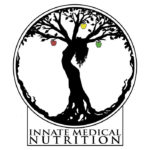The gut has the major function of absorbing nutrients from food. Though, it has another important function; creating a barrier to keep larger food particles, fillers, undigested food and undigested proteins from entering into the rest of body [1]. However, when these lines of defense are broken, a hole or gap is created. This allows the harmful and foreign substances to enter the bloodstream and cause a response from the body’s immune system. This compromise in the intestinal lining, which results in Not a real word the passage of particles and substances into the bloodstream, is referred to as a leaky gut syndrome [2].
This article will answer following key questions in relation to the causes of leaky gut:
– What causes the leaky gut syndrome?
– Who gets leaky gut syndrome?
What causes Leaky Gut Syndrome?
There are two major functions of gastrointestinal (GI) mucosal barrier:
- To prevent the passage of harmful substances such as foreign pathogens and microorganisms. [18]
- To act as a filter, allowing nutrients, vitamins and water to enter into the bloodstream [3][4].
Therefore, the first line of defense for the underlying immune system is the physical GI mucosal lining [5]. The GI barrier is characterized by the gut microbiome; the interaction between gut microbiome and underlying immune system has been well established in medical literature [6]. The microbiome is not only harmless or commensal, but most of the bacteria is symbiotic; that is, it establishes a beneficial relationship with the immune system [7].
When the external elements enter the bloodstream, they trigger an attack from the immune system [8]. This causes inflammation, which is a common response by the immune system to fight infection [8] . Consequently, the body’s immune system goes into a stress state; this uses up important vitamins, enzymes and minerals in the body [9] .
The immune system is compromised when the micronutrients in the body are used up. This allows opportunistic bacteria to ‘bloom’, contributing to inflammatory immune response [10]. The overgrown opportunistic bacteria not only takes its roots through the GI lining, but also creates an acidic environment in the gut [11]; therefore, GI lining is compromised even more. This starts a vicious cycle of constant wear and tear in GI lining. This translocation of microbiome directly leads to leaky gut syndrome [12].
Who gets the Leaky Gut Syndrome?
Have you ever had a traumatic experience? Have you ever experienced symptoms of illness after returning from a vacation in a foreign country? Have you ever had elaborate hospital stays?
When foreign bacteria or a parasite comes into our body, it causes a response from the underlying immune system [13]. This uses up the extra resources in the body as the immune system tries to repair and heal. This causes the compromise in GI lining, forming the basis of leaky gut syndrome [2].
However, for some of us, leaky gut syndrome starts way back at childbirth. Vaginal birth and caesarian birth have differing effects on formation of gut microbiomes [14]; similarly, breastfed and bottle fed infants develop differing bacteria cultures in the gut. Leaky gut can be caused if you had to take a lot of antibiotics from recurrent ear infections from recurrent ear infections or had other health issues during birth and afterwards.
The dysfunction in GI lining may have been a genetic predisposition for some of us [15]. However, genes and DNA are not the only factors to blame. Modern lifestyle plays the most important role in causing gut inflammation [16]. Our food choices and pharmaceutical use shape up the blueprint of our microbiome. The vitamins, enzymes and minerals, such as, vitamin B, vitamin C and zinc strengthen the immune system; on the contrary, lack of these micronutrients weakens the immune system [17].
Those of us who consume fast food and packaged food, along with lower intake of fresh vegetables and water, develop more of an acidic environment. Our food choices either feed commensal bacteria in our gut, or opportunistic pathogens. This way, we either make or break our immune system, which results in implications on the health of our GI lining. For instance, intake of antibiotics, carbonated drinks and caffeine can cause lower pH or acidity in the gut, and adversely affects the GI lining.
Conclusion
I write these blog posts to share my wisdom with you, acquired from a number of years of practice. Leaky gut is an extensive subject; there are many parts of the body, and everything is interconnected. This blog post gave you an overview as to the causes of leaky gut, and who gets it.
Leaky gut is, therefore, a result of multiple factors. These factors include the following:
- Bad dietary choices
- Antibiotics use
- External factors
- The pathogenic imbalance
- The microbiome imbalance and translocation
- An acidic environment in general
- Alcohol consumption
- Carbonated drinks consumption
- Caffeine use
These factors are known to create some inflammation and move apart those junctions within the cell walls of your GI lining. The result is creation of tiny holes and gaps, which lets external particles, such as food particles, fillers, parasites and bacteria to pass through into the bloodstream. This activates your immune system and a vicious cycle begins.
The key is the acidic environment which has been created within the gut. The acidic environment is a result of microbiome imbalance, anxiety or depression. This acidic environment allows different bacteria to live, which either assist immunity or keeps apart those junctions in our GI lining. So, we have to be mindful of our dietary choices to make sure we are assisting commensal bacteria instead of pathogenic or opportunistic bacteria.
What My Causes of Leaky Gut Video:
Sources:
- Julia König, Jerry Wells, and Robert-Jan Brummer, Human intestinal barrier function in health and disease, https://www.ncbi.nlm.nih.gov/pmc/articles/PMC5288588/
- Qinghui Mu, Jay Kirby and Xin M. Luo, Leaky gut as a danger signal for autoimmune diseases, https://www.ncbi.nlm.nih.gov/pmc/articles/PMC5440529/
- Turner J. (2009) Intestinal mucosal barrier function in health and disease. Nat Rev Immunol 9: 799–809., https://www.nature.com/articles/nri2653
- Katherine R. Groschwitz, BS and Simon P. Hogan, PhD, Intestinal barrier function: Molecular regulation and disease pathogenesis, https://www.ncbi.nlm.nih.gov/pmc/articles/PMC4266989/
- Adam M. Hammer, Niya L. Morris, and Mashkoor A. Choudhry, Ph.D., The effects of alcohol on post-burn intestinal barrier, immune cells, and microbiome, https://www.arcr.niaaa.nih.gov/arcr372/article06.htm
- John R. Kelly, Paul J. Kennedy, John F. Cryan, Timothy G. Dinan, Gerard Clarke and Niall P. Hyland, Breaking down the barriers: the gut microbiome, intestinal permeability and stress-related psychiatric disorders, https://www.ncbi.nlm.nih.gov/pmc/articles/PMC4604320/
- Helena Tlaskalová-Hogenová, Renata Štěpánková, David P Funda, The role of gut microbiota (commensal bacteria) and the mucosal barrier in the pathogenesis of inflammatory and autoimmune diseases and cancer: contribution of germ-free and gnotobiotic animal models of human diseases, https://www.ncbi.nlm.nih.gov/pubmed/21278760
- David D. Chaplin, Overview of the Immune Response, https://www.ncbi.nlm.nih.gov/pmc/articles/PMC2923430/
- Silvia Maggini, Adeline Pierre, and Philip C. Calder, Immune Function and Micronutrient Requirements Change over the Life Course, https://www.ncbi.nlm.nih.gov/pmc/articles/PMC6212925/
- Timothy W. Hand, The role of the microbiota in shaping infectious immunity, https://www.ncbi.nlm.nih.gov/pmc/articles/PMC5048567/
- Paul D. Cotter and Colin Hill, Surviving the Acid Test: Responses of Gram-Positive Bacteria to Low pH, https://www.ncbi.nlm.nih.gov/pmc/articles/PMC193868/
- Köhler CA, Maes M, Slyepchenko A, Berk M, Solmi M, Lanctôt KL, Carvalho AF, The Gut-Brain Axis, Including the Microbiome, Leaky Gut and Bacterial Translocation: Mechanisms and Pathophysiological Role in Alzheimer’s Disease, https://www.ncbi.nlm.nih.gov/pubmed/27604604
- Lindsay B. Nicholson, The immune system, https://www.ncbi.nlm.nih.gov/pmc/articles/PMC5091071/
- Josef Neu and Jona Rushing, Cesarean versus Vaginal Delivery: Long term infant outcomes and the Hygiene Hypothesis, https://www.ncbi.nlm.nih.gov/pmc/articles/PMC3110651/
- Adam B, Liebregts T, Holtmann G, Mechanisms of disease: genetics of functional gastrointestinal disorders–searching the genes that matter., https://www.ncbi.nlm.nih.gov/pubmed/17268545
- Michael A. Conlon, and Anthony R. Bird, The Impact of Diet and Lifestyle on Gut Microbiota and Human Health, https://www.ncbi.nlm.nih.gov/pmc/articles/PMC4303825/
- Rasnik K. Singh, Hsin-Wen Chang, Di Yan, Kristina M. Lee, Derya Ucmak, Influence of diet on the gut microbiome and implications for human health, https://www.ncbi.nlm.nih.gov/pmc/articles/PMC5385025/
- Maaike Vancamelbeke and Séverine Vermeire, The intestinal barrier: a fundamental role in health and disease, https://www.ncbi.nlm.nih.gov/pmc/articles/PMC6104804/

